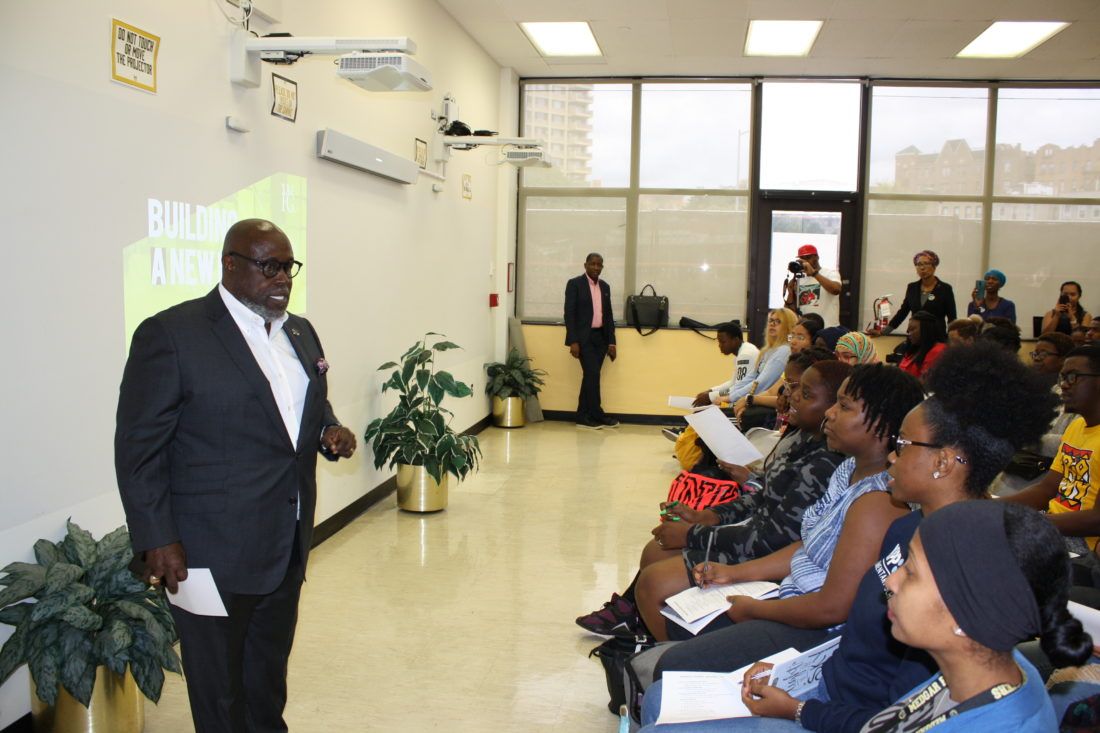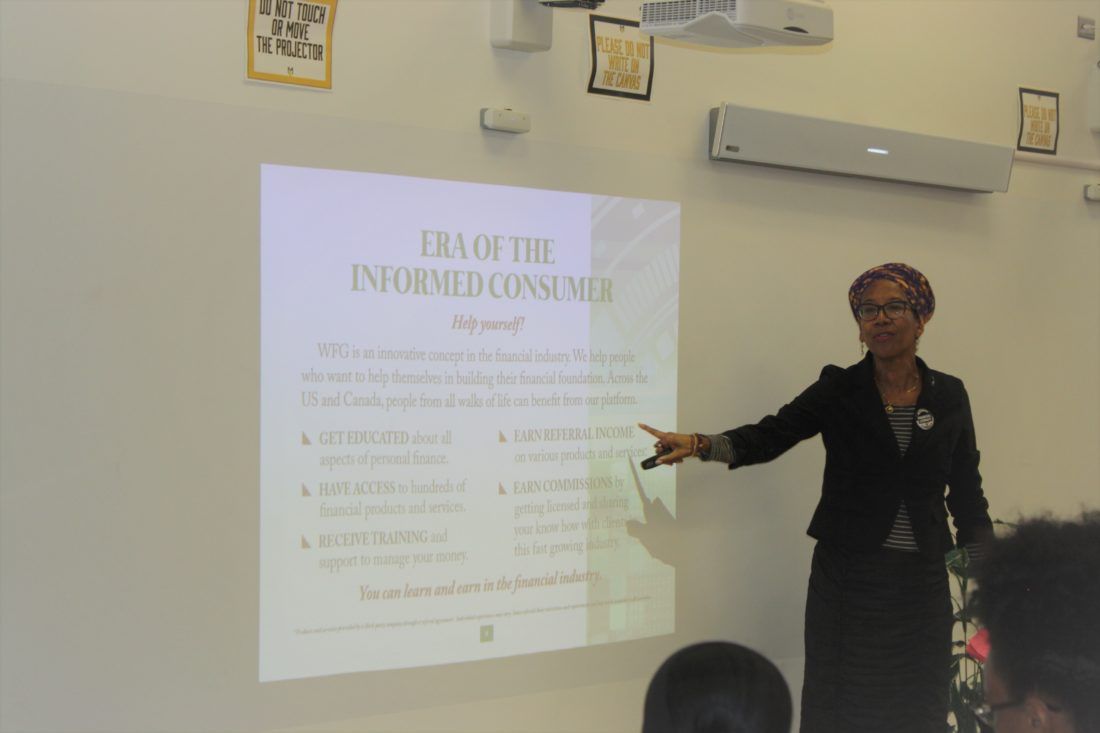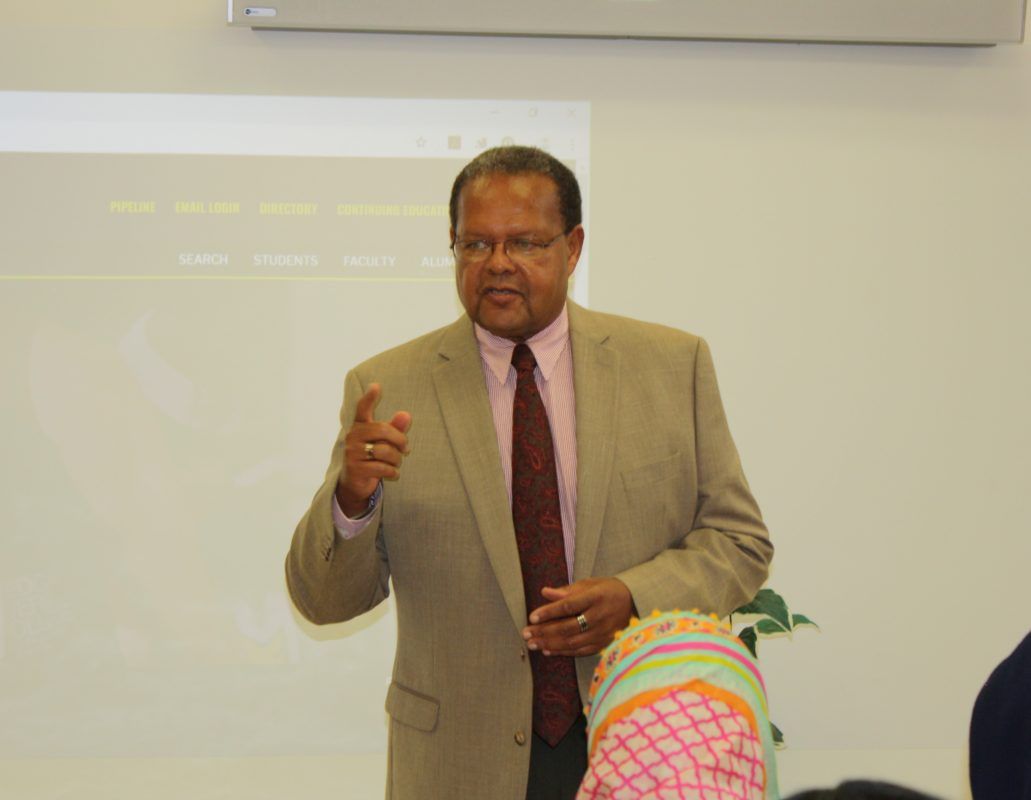Hungry and Homeless: Medgar Evers College Battles Student Food And Housing Insecurity


CROWN HEIGHTS – Earning good grades is only half the battle for some students in the City University of New York (CUNY) system. Maintaining a roof over their head and food on the table, while working on a college degree, is an additional challenge for all too many.
In 2018, 48% of the 22,000 CUNY students who responded to New York #RealCollege Survey said they were food insecure last year. Among those surveyed, 55% were housing insecure and 14% were homeless, according to the report that was released in March. It’s a struggle that administrators at Medgar Evers College in Crown Heights are well-aware of and making every effort to assist vulnerable students.
Through its Transition Academy program, the school offers a range of services, from helping students navigate the New York City Department of Social Service’s shelter intake process to maintaining a campus food pantry and distributing MetroCards, said Medgar Evers Student Life Specialist Waleek Boone.
“When we started Transition Academy, we were targeting homeless students. After we evaluated and engaged with the students, it turns out that more of them are food insecure versus homeless,” Boone explained. “This is our third year of serving students. We have seen over 500 of them that are either homeless or facing eviction or food insecure.”
Offering various workshops throughout the academic year is one of the tools in Transition Academy’s arsenal. Workshops on domestic violence — the main cause of housing insecurity — has become just one of several core offerings.

On Tuesday, September 10, the college hosted a financial literacy workshop organized by the D.R.E.A.M. Foundation, a Brooklyn-based nonprofit that also distributed backpacks and school supplies to the more than 100 students who attended the event.
DeCosta Headley, the foundation’s chairman and founder, encouraged students to persevere and to help each other along the way.
“We don’t make ourselves,” Headley told the group. “We cannot achieve our goals by ourselves. We have to want and desire to be a part of each other.”
Indeed, life teaches that one often must depend on others to get over the hurdles, and the challenges are daunting for many across CUNY.

“What I find most challenging personally is that a lot of the stories are heartbreaking,” said Medgar Evers Interim Dean of Student Affairs Alexis J. Mclean.
If a student with five children needs 10 bags of groceries, Mclean wants to make sure the program delivers. “We haven’t reached that point,” Mclean said, underscoring that Transition Academy is trying to build capacity through grants and partnerships.
One of the biggest challenges is serving students who are experiencing housing insecurity. “Transient students will fall off the grid for weeks or months at a time,” the dean emphasized.
Mclean and Boone praised the financial literacy event.
“We have a lot of students who come from neighborhoods and families where that type of knowledge isn’t infused into them or readily available,” Mclean stated. “They tend to have information that’s pretty basic, so they are not really aware, for example, of how interest works or how taking out a personal loan can hinder them from acquiring other things later in life.”
Boone added: “It’s important to inform students how to budget their money and prevent them from falling into hardship.
At the end of the workshop, Medgar Evers President Rudy Crew delivered closing remarks.
“You have to understand how the economy works and how what you do today with your money has impact on tomorrow. For most people in our community, money comes in and out of our hands,” Crew said, underscoring that it’s imperative in today’s economy to be an owner and not just a consumer.




